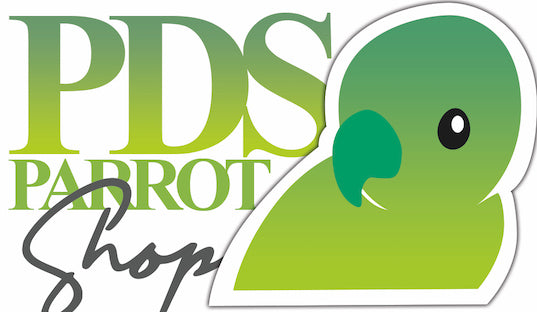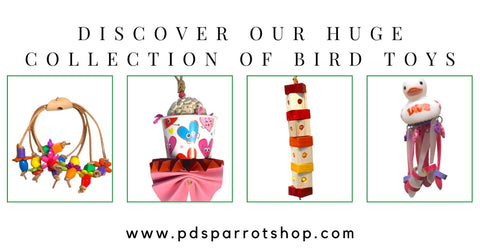
Toxic Respiration Hazards for Pet Birds: A Comprehensive Guide
Share
Understanding the potential respiratory hazards they face is essential for their well-being. Pet birds bring joy and companionship to our lives, but they are vulnerable to various environmental hazards, including toxic substances in the air. Toxic respiration hazards can pose serious health risks to our pet birds making it crucial for pet owners to be well-informed. In this comprehensive guide, we will explore toxic respiration hazards for pet birds, shed light on the dangers, and provide valuable tips on keeping your avian companions safe.

Pin Me
Toxic Respiration Hazards for Pet Birds
Pet birds can be exposed to a range of toxic respiration hazards, both inside and outside the home. Understanding these hazards is the first step in ensuring the health and longevity of your feathered companions.
Indoor Hazards
1) Secondhand Smoke: Birds are highly sensitive to smoke from tobacco or other substances. Secondhand smoke can lead to respiratory distress, eye irritation, and other health issues in pet birds.
2) Household Chemicals: Cleaning products, aerosols, nonstick cooking bags/ foils, and fumes from non-stick cookware can release toxic chemicals that harm birds when inhaled. Ensure proper ventilation and avoid using such products near your pet bird.
Teflon and Non-Stick Cookware
3) Teflon and Non-Stick Cookware: The fumes emitted when overheating PFASs, Teflon, PFOA, PFOS, and PTF or non-stick cookware can be deadly to pet birds. Avoid using these cookware types in homes with birds, and be cautious when cooking near them. Use ceramic, stainless steel, or cast iron.
4) Non-stick Household Items: Heat lamps, non-stick irons, waffle irons are a few other items with non-stick coating that are hazards for pet birds.
Scented Products
5) Scented Products: The fragrances from scented products like perfumes, air fresheners, and scented candles can be toxic to pet birds. Air fresheners, scented candles, potpourri, plugins, carpet fresheners, car fresheners, and perfumes can emit fragrances that are harmful to birds. You can boil cinnamon, apples, oranges to make a natural fragrance for your home.
6) Christmas Trees: Live Christmas trees are sprayed with pesticides. Plastic Christmas tree put too near a heat source can cause fumes to release from the plastic. For more holiday-specific hazards that can affect their health and wellbeing of your parrot.
7) Burning food: Burning food can cause smoke and other fumes entering the environment causing harm to pet birds.
8) Fireplaces: Please ensure proper clean vents for smoke.
Outdoor Hazards
9) Air Pollution: Even outdoor birds can be affected by air pollution. Pollutants such as carbon monoxide, sulfur dioxide, and particulate matter can harm birds' respiratory systems. Ensure your bird's cage or aviary is located away from sources of pollution.
10) Pesticides: If you allow your pet bird outside, be cautious of pesticide use in your yard or garden. Birds may ingest or come into contact with harmful chemicals used to control pests. Please don't spray when your birds are close by.
Protecting Your Pet Birds
Now that we've identified the potential hazards, let's explore how to protect your pet birds from toxic respiration hazards effectively.
Create a Bird-Friendly Environment: Make your home safe by eliminating or minimizing the use of toxic chemicals, scented products, and non-stick cookware.
Provide Adequate Ventilation: Ensure proper airflow in your bird's living space. Use air purifiers and open windows regularly to maintain fresh air quality.
No Smoking: If you are a smoker, refrain from smoking indoors or near your pet birds. Smoking is one of the most significant respiratory hazards for birds.
Regular Vet Check-ups: Schedule regular check-ups with an avian veterinarian. They can identify potential health issues early and provide guidance on maintaining a healthy environment.
Outdoor Caution: If you take your pet bird outdoors, supervise them carefully to prevent exposure to pesticides or polluted air.
Protecting your parrots health
Protecting your pet birds from toxic respiration hazards is a vital aspect of responsible bird ownership. By understanding these hazards for pet birds and taking proactive steps to mitigate them, you can provide a safe and healthy environment for your pet bird. Remember, a little care goes a long way in ensuring a long and happy life for your beloved pet birds.
FAQs
Q: How can I tell if my bird is experiencing respiratory distress?
A: Watch for signs such as labored breathing, wheezing, coughing, or nasal discharge. If you notice any of these, consult an avian veterinarian immediately.
Q: Are there safe alternatives to non-stick cookware?
A: Yes, you can opt for cookware made of stainless steel, cast iron, or ceramic, which are safer options for homes with pet birds.
Q: Can scented candles or air fresheners be used in the same room as my pet bird?
A: No, they are hazards for pet birds. avoid using scented products in the same room as your bird to protect their respiratory health.
Q: Are there air purifiers specifically designed for homes with pet birds?
A: Yes, some air purifiers remove pet dander and odors, making them suitable for homes with pet birds.
Q: How often should I schedule vet check-ups for my pet bird?
A: It's recommended to schedule annual check-ups with an avian veterinarian, but more frequent visits may be necessary if health concerns arise.
More Articles on Bird Health
Vitamin A plays a critical role in immune function, skin health, and the respiratory system in parrots. Understanding how vitamin A deficiency develops and what signs to watch for is an important part of long-term health awareness.
Vitamins support everything from metabolism to neurological function in birds. A clear understanding of vitamin deficiencies in birds and their early indicators supports proactive, informed care rather than reactive treatment.
Monika Sangar, MSc – Molecular Biology | Avian Nutrition Specialist | Founder: PDSnonprofit | Owner: Pds Parrot Shop
Monika Sangar is a parrot rescuer, bird food chef, and toy designer with over a decade of experience in avian care and nutrition. She is the founder of Prego Dalliance Sanctuary and the author of The Science of Avian Nutrition, a cookbook dedicated to fresh, healthy meals for parrots. Explore more bird care tips and bird toys at PDS Parrot Shop!


3 comments
A very good write up.
Some parrot owners are still not aware of some of the dangers.
Thank you for the info! I know it now, but many newer parronts sure need it! Not something new parronts usually know about!
thanks for sharing this article. People have no idea about self cleaning ovens ,perfumes etc…
People need to be aware. Thanks again.